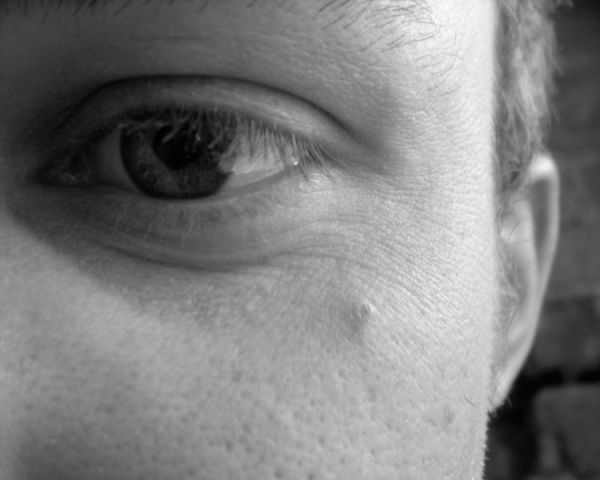Are you worried about the wrinkles in your face? Explore the article given below to know more about aging skin problems.
Aging Skin Problems
Hope you remember 'Linda Litzke', the dump and humorous protagonist character enacted by Frances McDormand, in the Coen brother's 2008 film "Burn after Reading'. She brings all the chaos in the world to the people by intending to do a cosmetic surgery for improving her aged, wrinkled face. Everybody wants to drink the elixir of youngness. However, with age and with pollution, the skin gets rough and dry and wrinkles do take places on, once smooth facial skin. The aging signs can also be triggered because of overexposure to the sunlight. The ultra violet rays of sunlight is really harmful to human skin as it produces more free radicals in skin , which may lead to serious skin problems like skin cancer. Human skin has three layers namely Epidermis, papillary dermis and subcutaneous tissue. And depending on these layers, our skin faces different kinds of aging problems. Given below are some of the skin aging problems.

Image: bagaball@flickr
Skin Aging Problems
Before we move on to the skin aging problems, we need to know the layers of the skin.
The Layers Of The Skin
- The layers of the skin are divided into three parts. They are named epidermis (outer layer), papillary dermis, and subcutaneous tissue.
- The thickness of the epidermis differs in different types of skin. It is the thinnest on the eyelids at 0.05 mm and the thickest on the palms and soles at 1.5 mm.
- Dermis contains capillaries that feed the cells with nutrient-rich blood. This layer is also called as ‘top soil’ because other components of skin like hair follicles, nerve cells, and sweat glands grows here.
- Subcutaneous tissue contains a layer of fat. Blood vessels in this layer feed and drain the capillaries of the dermis.
Skin Aging Problems
The Causes Of Skin Aging
Skin aging causes can be divided into two categories as intrinsic aging and extrinsic aging.
Intrinsic Aging Of Skin
- The natural aging process is called as intrinsic aging process. This process begins when a person is in his or her mid 20’s.
- After a particular age, various natural process of skin slow down such as collagen production, shedding of dead skin and new cells production.
- Thinning of skin, fine wrinkles, hollowed cheeks, itchy dry skin, ridges on nails are considered to be sign of natural aging process.
Extrinsic Aging Of Skin
- Extrinsic aging is the aging process is caused by disturbing external factors such as UV rays from sun, lack of anti aging agent in the food routine and pollution.
- There are various reason for extrinsic aging of skin as pollution, UV rays of sunlight, stress, irregularity in sleep, artificial skin care creams etc.
Aging Skin Problems
- You may notice large pigmented spots in aged people. These spots are called liver spots, lentigos or age spots. This is because of the frequent sun exposure and other aging factors.
- The outer skin layer thins when people grow aged even though the number of cell layers remains unchanged.
- Aging skin usually appears thin and pale. The number of pigment-containing cells decreases while the remaining melanocytes increase in size. This imbalance causes the skin to be thin.
- Elements like Collagen and Elastin starts to decrease when people get older which naturally results wrinkles in their face. This disorder also makes the skin dry and rough.
- Smoking and drinking alcohol also lead your skin to aging. Smoking fuels the growth of free radicals, which can create instability in your body. Alcohol is a drying agent, which takes away the moisture of your skin.
- Irregularity in sleep and heavy stress makes your skin look older than it really is. If you miss one good sleep, you can see black circles around your eye.
- The Ultra violet rays in the sunlight makes your skin age sooner. It’s proved that too much exposure of sunlight is also a reason for skin cancers.
- Heavy usage of chemical skin care creams can cause severe skin problems. The synthetic ingredients in these creams cause allergy, irritation, redness, or itching. It’s better to avoid or minimize the use of these products.
See also
More from iloveindia.com
- Home Remedies | Ayurveda | Vastu | Yoga | Feng Shui | Tattoos | Fitness | Garden | Nutrition | Parenting | Bikes | Cars | Baby Care | Indian Weddings | Festivals | Party ideas | Horoscope 2015 | Pets | Finance | Figures of Speech | Hotels in India : Delhi | Hyderabad | Chennai | Mumbai | Kolkata | Bangalore | Ahmedabad | Jaipur
- Contact Us Careers Disclaimer Privacy Policy Advertise With Us Lifestyle Sitemap Copyright iloveindia.com. All Rights Reserved.







